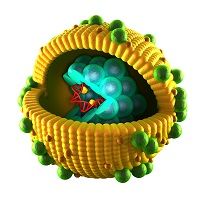Article
Rheumatoid Arthritis Patients at Greater Risk for Hepatitis B, Even with Vaccine
Author(s):
Rheumatoid arthritis patients are less likely to be protected from hepatitis B than their non RA counterparts, according to research presented at the European League Against Rheumatism (EULAR) Annual Congress earlier this year in Rome, Italy.

Rheumatoid arthritis (RA) patients are less likely to be protected from hepatitis B than their non RA counterparts, according to research presented at the European League Against Rheumatism (EULAR) Annual Congress earlier this year in Rome, Italy.
Researchers from the Radboud University Medical Center in Nijmegen, the Netherlands evaluated hepatitis B protection in RA patients in order to demonstrate the efficacy of the vaccine. The researchers administered the HBVAXPRO 10 vaccine according to the standard regimen — delivered at 0, 1, and 6 months. The researchers additionally took markers of the patients’ response to the vaccine (through hepatitis B antigens and anti HBsAG) after 28 weeks.
The researchers found that, within the trial, just 11 percent of RA patients with the hepatitis B vaccine responded to the vaccine. Vaccinated patients without RA responded to the vaccine at a rate of 83 percent. The researchers suggested that people with RA are still at risk of hepatitis B infection despite their vaccination status.
“The majority of RA patients tested as part of our study were not protected by hepatitis B vaccination,” study investigator Misha Tilanus explained in a press release. “People with RA have an increased risk of morbidity and mortality from infections, and to discover that immunization might not confer protection is a real concern. It’s crucial that patients and healthcare practitioners are aware of this lack of efficacy and do all they can to minimize risk.”
The global prevalence of RA is between 0.3 and 1 percent, and is more common in women, the statement added. The authors continued that many of the RA treatments can suppress the immune system in patients, leaving the patients at risk for contracting a potentially fatal infection. However, in this study, there was no difference in hepatitis B vaccination response across patients using anti tumor necrosis factor (anti TNF), disease modifying anti rheumatic drugs (DMARDs), or rituximab.
The authors estimated that about 240 million people worldwide are chronically infected with hepatitis B and the disease kills almost 800,000 people annually.





